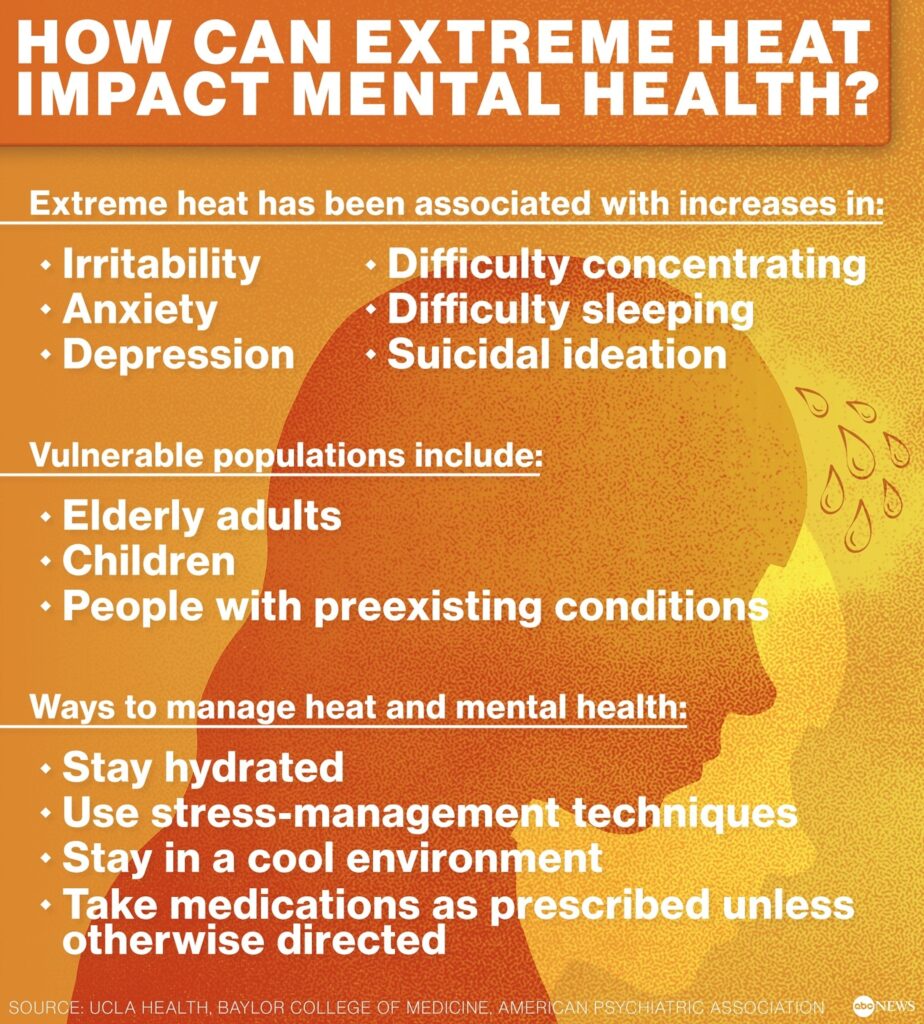The Effects of Rising Temperatures on Brain Health
With the intensification of heatwaves linked to climate change, researchers are diving deep into understanding how extreme heat impacts brain function. These inquiries are particularly crucial as many individuals experience debilitating neurological disorders exacerbated by sweltering temperatures.
Real-Life Consequences of Heat and Neurological Conditions
Consider the story of Jake, a 13-year-old diagnosed with Dravet Syndrome, an epilepsy condition that affects approximately one in 15,000 children. His mother, Stephanie Smith, recounts how Jake’s first tonic-clonic seizure occurred during a heatwave when he was just five months old. This marked the beginning of their family’s struggle against the recurring seizures triggered by hot weather.
“Increasingly hot summers and heatwaves are compounding the challenges of living with this condition,” says Smith. The medical community is becoming increasingly aware that Jake’s situation is far from isolated. According to Sanjay Sisodiya, a neurologist at University College London, various neurological disorders, including epilepsy and multiple sclerosis, worsen during periods of intense heat.
The Mechanisms Behind Heat and Brain Function
The human brain operates optimally at a temperature that is rarely more than 1°C above our core body temperature. However, as one of the body’s most heat-sensitive organs, it generates additional heat through cognitive activity. Adequate blood circulation helps to manage this heat. If the brain becomes overheated, the efficiency of neurotransmitters—compounds that facilitate communication between brain cells—can diminish.
“We do not fully grasp how various factors interact in this complex scenario,” Sisodiya observes. Excessive heat can alter behavior, decision-making, and can lead to heightened anxiety and aggression. Moreover, individuals with existing neurological ailments often experience more severe effects due to impaired thermoregulation, making them particularly vulnerable during heatwaves.
Impact on Vulnerable Populations
Elderly individuals and those with lower incomes face heightened risks associated with heatwaves. Hospital admissions among dementia patients typically spike during extreme temperatures, often exacerbated by cognitive challenges that diminish their ability to respond appropriately to heat. Additionally, studies reveal increased incidents of stroke and higher mortality associated with heat exposure, particularly in low- and middle-income countries already grappling with health disparities.
Dangers of Heat on Neurodevelopment
The repercussions of rising temperatures extend to the youngest members of society. Research indicates a 26% spike in preterm births during heatwaves, potentially leading to long-term cognitive impairments. Jane Hirst, a professor at Imperial College London, states, “While many women in hot countries give birth without issues, the risk rises significantly amidst extreme heat.”
Future Implications and Research Directions
As the climate crisis intensifies, the brain’s vulnerability increases. Excessive heat can compromise the blood-brain barrier, elevating the risk of neurodegenerative diseases and heightening susceptibility to viruses transmitted by mosquitoes, such as Zika and dengue fever, which can have lasting impacts on brain health.
There are numerous questions yet to be answered regarding how rising temperatures affect various individuals differently, potentially influenced by genetic factors. Understanding these nuances is vital for developing effective protective strategies for the most at-risk populations.
At a Glance: The Connection Between Heat and Neurological Disorders
| Condition | Impact of Heat |
|---|---|
| Epilepsy | Increased seizure frequency |
| Dementia | Higher admission rates during heatwaves |
| Multiple Sclerosis | Worsened symptoms due to impaired thermoregulation |
| Stroke | Increased risk and mortality during elevated temperatures |
As heatwaves become more frequent and severe, the systemic implications for society underscore the urgent need for responsiveness and adaptation strategies. Researchers are continually working to unravel the complexities of how climate change affects our brains, with an emphasis on protecting public health as global temperatures continue to rise.


